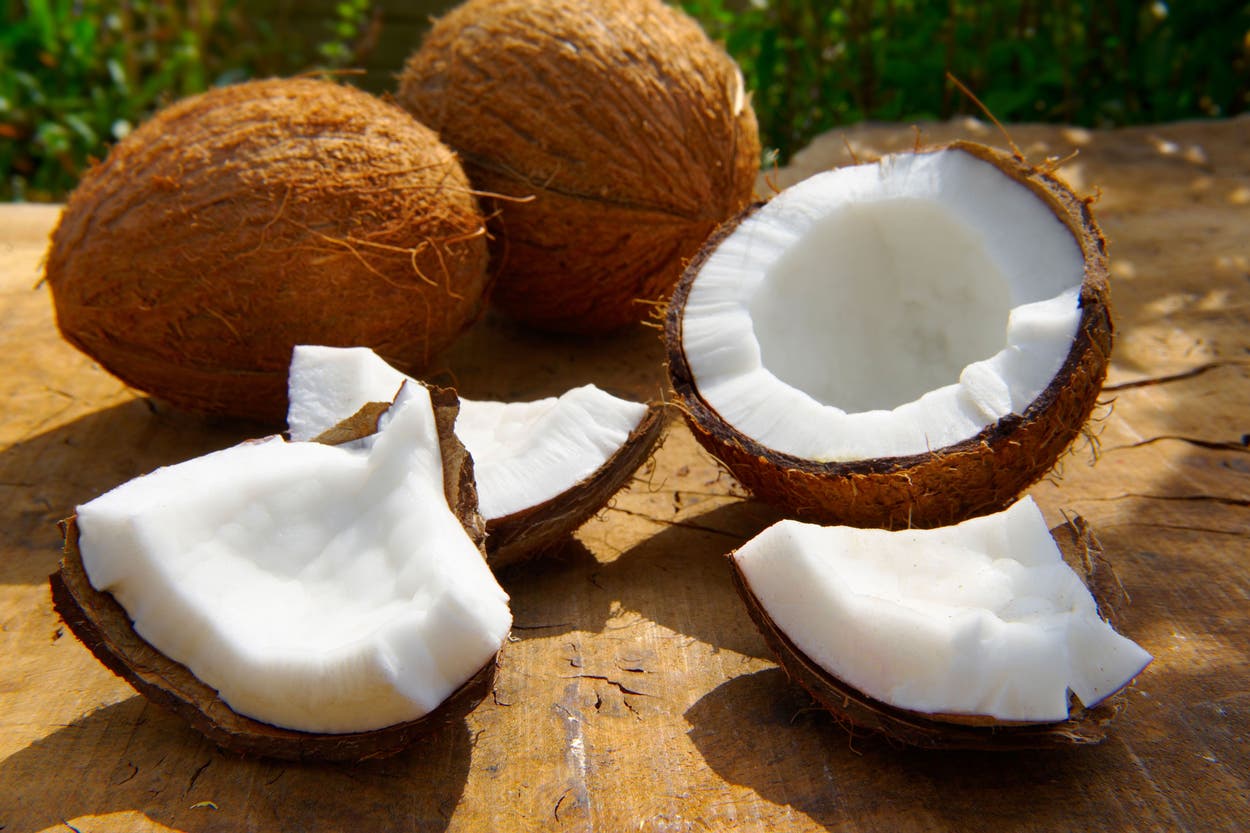Health Benefits of Coconuts
What are the health benefits of coconuts?
Coconuts offer several health benefits due to their nutrient content and unique properties. Here are some key health benefits of coconuts:
- Nutrient-Rich: Coconuts are rich in vitamins and minerals, including vitamin C, vitamin E, vitamin B6, iron, magnesium, and potassium. They also contain healthy fats, protein, and fiber.
- Heart Health: The medium-chain triglycerides (MCTs) in coconut are believed to have beneficial effects on heart health. They may help lower cholesterol levels, reduce inflammation, and improve blood clotting factors.
- Weight Loss: MCTs in coconut may help increase feelings of fullness and boost metabolism, potentially aiding in weight loss when consumed as part of a balanced diet.
- Digestive Health: The fiber in coconut may help promote digestive health by supporting regular bowel movements and feeding beneficial gut bacteria.
- Blood Sugar Control: Some studies suggest that coconut products, such as coconut flour or coconut oil, may help improve insulin sensitivity and blood sugar control, which can be beneficial for people with diabetes.
- Antioxidant Properties: Coconuts contain antioxidants, such as phenolic compounds, which help protect cells from damage caused by free radicals and may reduce the risk of chronic diseases.
- Improved Skin and Hair Health: Coconut oil is often used in skincare products due to its moisturizing and antibacterial properties. It may help improve skin hydration, reduce inflammation, and protect against UV damage. Coconut oil is also used in hair care products to improve hair health and reduce protein loss.
- Boosted Immune System: The lauric acid in coconut has antimicrobial properties that may help support the immune system and fight off infections.
- Bone Health: Coconuts contain minerals like manganese, which is important for bone health and may help reduce the risk of osteoporosis.
- Brain Health: Some studies suggest that the MCTs in coconut may provide energy for the brain and improve cognitive function, although more research is needed in this area.
Overall, incorporating coconut and coconut products into your diet in moderation can provide various health benefits. However, it’s important to choose minimally processed coconut products and consume them as part of a balanced diet to maximize their health benefits.
What are the health risks of coconuts?
Coconuts are generally safe for most people when consumed in moderate amounts as part of a balanced diet. However, some individuals may experience adverse effects or allergic reactions to coconut products. Here are some potential health risks associated with coconuts:
- Allergic Reactions: Some individuals may be allergic to coconuts or coconut products, experiencing symptoms such as itching, hives, swelling, or difficulty breathing. Coconut allergies are relatively rare but can be severe in some cases.
- High in Saturated Fat: While coconut contains healthy fats, including medium-chain triglycerides (MCTs), it is also high in saturated fat. Consuming large amounts of coconut or coconut oil may contribute to an increased intake of saturated fat, which can raise cholesterol levels and increase the risk of heart disease, especially in individuals with existing heart conditions.
- Potential for Weight Gain: While MCTs in coconut may aid in weight loss for some individuals, consuming coconut products in excess may contribute to weight gain, as they are calorie-dense.
- Gastrointestinal Issues: Some individuals may experience digestive issues, such as diarrhea or stomach discomfort, when consuming large amounts of coconut or coconut products, especially if they are not accustomed to high-fiber foods.
- Interactions with Medications: Coconut products, particularly coconut oil, may interact with certain medications, including anticoagulants (blood thinners), by potentially increasing the risk of bleeding. It’s important to consult with a healthcare provider if you are taking medications and plan to consume coconut products regularly.
- Potential for Contamination: In rare cases, coconut products may be contaminated with bacteria, such as Salmonella, which can cause foodborne illnesses. It’s important to ensure that coconut products are properly stored and handled to reduce the risk of contamination.
- High Caloric Content: Coconut products, such as coconut milk or coconut cream, are high in calories. Consuming them in large amounts without considering portion sizes can contribute to weight gain or hinder weight loss efforts.
Overall, while coconuts can be a nutritious addition to a balanced diet for most people, it’s important to consume them in moderation and be aware of potential risks, especially if you have specific health conditions or allergies. If you have any concerns about consuming coconuts, consult with a healthcare provider or allergist.




